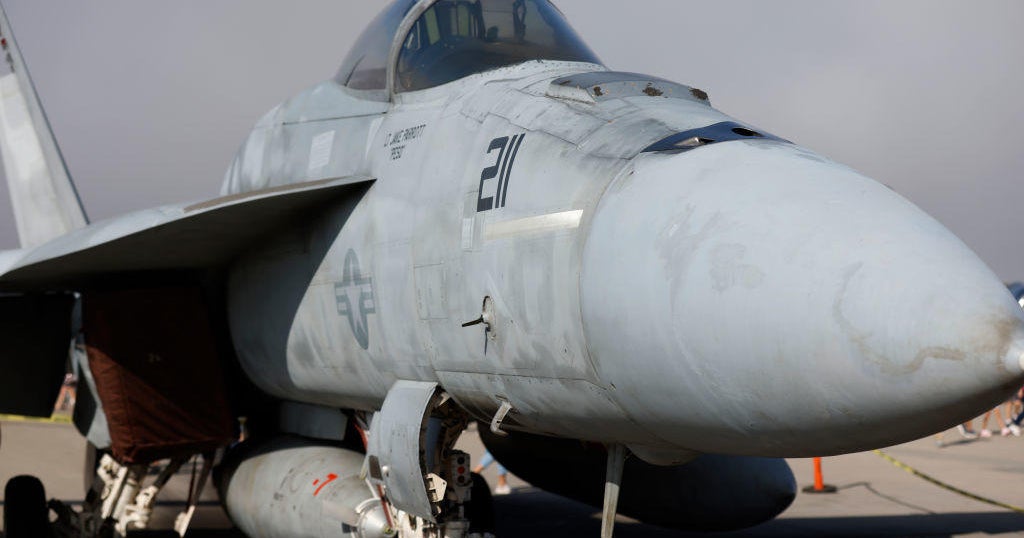Tech
Dow’s Lack of AI Stocks Puts Blue-Chip Index ‘Behind the Curve’

(Bloomberg) — The rise of artificial intelligence has reordered the American stock market, pushing the likes of Nvidia Corp. and other chipmakers into the upper echelons. There’s one storied corner, though, where the changes wrought by AI haven’t shown up: the Dow Jones Industrial Average.
Most Read from Bloomberg
The 128-year-old blue-chip index doesn’t include Nvidia or Broadcom Inc. Alphabet Inc. and Meta Platforms Inc. are also missing. Much of that owes to how the Dow is constituted — a committee selects the 30 components and weights them by price rather than market capitalization.
The overseers try to balance membership across sectors, so tech is represented, but to some degree by yesteryear’s titans: Intel Corp., Cisco Systems Inc. and International Business Machines Corp. The trio are all long-term underperformers among large-cap tech.
The omission of any true AI play after the technology has dominated market returns for nearly two years is again raising questions about the utility of the Dow average while also revitalizing the age-old parlor game of trying to guess when the committee will shuffle membership and how.
“With AI, the economy is really going through a shift like the 90s with the Internet. I think the Dow is missing that theme,” said Nancy Tengler, chief executive officer at Laffer Tengler Investments. That’s left the index “behind the curve,” she said. While Nvidia and Broadcom would be the most obvious AI-focused additions, the latter may be a better pick because it tends to be less volatile, Tengler said.
The lack of some high-flying tech stocks — and a lower allocation to the sector overall compared with the S&P 500 Index — helps explain why the Dow has lagged other gauges for years. Since the start of 2010, it has returned more than 470%, including dividends, compared with the S&P 500’s about 580% gain. The tech-heavy Nasdaq 100 is up more than 1,100%.
To be sure, The Dow isn’t intended to mirror the overall equity market, but rather act as a cross-section of American-based companies. Its methodology states that stock selection “is not governed by quantitative rules,” with names typically added “if the company has an excellent reputation, demonstrates sustained growth and is of interest to a large number of investors.”
Hamish Preston, head of US Equities at S&P Dow Jones Indices, said that the Dow’s eligibility criteria have evolved and are frequently reviewed. “They may well be adjusted over time depending on what the committee deems relevant to ensure that the indices remain relevant,” he said in an interview.
The Dow’s method for stock selection is unusual compared with other indexes. While the S&P 500 has a quarterly review process — and recently added two more AI-related stocks — the Dow’s committee has no set schedule to make adjustments. The last change occurred in February when Amazon and Uber Technologies replaced Walgreens Boots Alliance and JetBlue Airways. In adding Amazon, S&P Dow Jones Indices cited the “evolving nature of the American economy.”
To be sure, the index does have some exposure to AI already. Microsoft Corp. is integrating ChatGPT technology into its software products and has been a Dow component for almost 25 years. Apple Inc., which is making AI services a cornerstone of its newest iPhones, was added in 2015, a few years after it became the world’s most valuable company.
But with the biggest names in the burgeoning industry missing, some say changes are overdue.
“It’s clear that the Dow is going to do something that reflects AI,” said Quincy Krosby, chief global strategist at LPL Financial. “They’re almost compelled to.”
Top Tech Stories
-
Apple is set to be warned by the European Union to open up its highly guarded iPhone operating system to rival technologies, or eventually risk significant fines.
-
Ampere Computing LLC, the semiconductor startup backed by Larry Ellison’s Oracle Corp., is exploring a potential sale, according to people with knowledge of the matter.
-
Elon Musk’s X skirted a ban of the social media network in Brazil though an automatic update of its software, an association of Brazilian internet providers said Wednesday.
-
Japan’s Icom Inc., whose brand appears on walkie-talkies that exploded in Lebanon, said it halted production a decade ago of the model allegedly used in the attacks and is still investigating the situation.
-
Nintendo Co. filed a patent infringement lawsuit against Tokyo-based Pocketpair Inc., the maker of hit game Palworld, seeking an injunction and compensation for damages.
Earnings Due Thursday
–With assistance from Carmen Reinicke.
Most Read from Bloomberg Businessweek
©2024 Bloomberg L.P.










